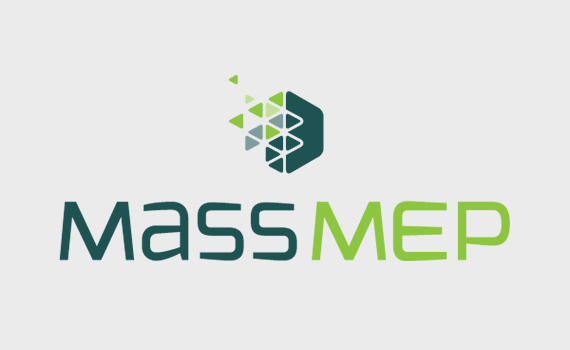A Word from our President
This past June, I was privileged to spend a week in Germany with several other folks from MEP Centers, Man ufacturing USA Institute and the Department of Defense. The trip was organized by the America Works, part of MAGNET MEP and American Council on Germany, and we were the third group of MEP Centers to visit and learn more about Germany’s apprentice programs.
ufacturing USA Institute and the Department of Defense. The trip was organized by the America Works, part of MAGNET MEP and American Council on Germany, and we were the third group of MEP Centers to visit and learn more about Germany’s apprentice programs.
When thinking about the progress of workforce development and smart manufacturing in the state of Massachusetts, taking a trip and learning more about what they do for these areas in Germany, usually isn’t an initial thought. Yet if there is one thing we have learned in the past three years, collaboration on all levels is critical for our advancement in manufacturing. Having been fortunate to have the chance to travel abroad in the past, this trip was much different due to the purpose and ability to experience the country in a professional setting.
We visited Berlin, Lepzig and Madgeburg. Across those regions, the establishments varied from the Confederation of German Employers’ Association, Vocation School for Machine & Production Technology, DHL Hub, BMW, Training Center for the Magdeburg Chamber of Handicrafts and the Frauhofer Institute for Factory Operation, to list a few of the more than a dozen we physically visited.
Reflecting on what we learned from these visits it was clear that the German system for apprentice programs is unique. There is an association (Chambers, schools, and companies) that determines the dual vet system for the entire country. This ensures that the training is consistent no matter where someone trained and provides youth and adults with skills and certifications that are portable and recognized national and internally. There is also a focus on practical learning vs. theoretical, validated through the German education system that apprentices are an integral part of the structure.
Specific differences that promote the importance of apprenticeship in the German System; starting the conversation early (4th grade), internship opportunities at a young age (ages 14-16), dual vet system for interested students at age 17, all levels of certifications, apprentice stipends, family influence on career choice, and project work parallel to a lean six sigma certification. As there are differences, there are always similarities. Germany also deals with workforce issues even with stipends and a free education.
The statement, “workforce issues even with stipends and a free education” doesn’t seem to make sense. If there is a structured system currently in use, with all levels of support, and it still struggles, how? This allows my thoughts to collect on how we can continue to foster the importance of manufacturing in Massachusetts and beyond…
- Start earlier and have a cohesive message around the opportunities within manufacturing. Possibly by starting with:
- Company mentors
- Company and academic mini-camps
- Opportunities that are of greater interest to younger people: programming,
robotics, automation, sensors, simulations, remote/flexible work
- Leveraging Company/organizational involvement in the communities.
- Capturing company knowledge: this is critical to long-term success with a retiring workforce bubble and higher workforce mobility.
- Changing the perception of manufacturing – the creation of something for the greater good of the economy and environment.
- Utilize the current pockets of apprentice program excellence to grow support for growing apprentice programs.
We are not going to be successful by ourselves, and by working together, with some specific goals in mind we can make strides to improve the workforce pipeline.
Speaking of making strides to improve the workforce pipeline…on May 19, 2023, MassMEP held the Manufacturing Your Future Smart Manufacturing event that focused on a variety of areas with a reticent message that additive manufacturing can support the workforce strategies. The opportunities smart manufacturing presents are attractive to the younger workforce changing their perception of manufacturing. This is also an area Europe is capitalizing in as they work for a more environment friendly and lean future in manufacturing.
During our visit at Fraunhofer Institute, Industry 5.0 was mentioned as the next revolution. During this conversation, my takeaway was the next revolution will focus more on the employee: Industry 5.0 “provides a vision of industry that aims beyond efficiency and productivity as the sole goals and reinforces the role and the contribution of industry to society.” And “it places the well-being of the worker at the center of the production process and uses new technology to provide prosperity beyond jobs and growth while respecting the production limits of the planet” Tying in the ESG (Environment, Social and Governance) that can be a driver for our future workforce and attract workers to manufacturing.
While knowing how important workforce development such as apprentice programs are to our industry, it also became clear that smart manufacturing is a very relevant topic to allow us to move forward in manufacturing and to grow and progress our workforce. If the vision of Industry 5.0 stays true, it too is evolving with a centered focus on the “well-being of the worker” that is proving to be critical for workforce development. Even if I was thousands of miles away from Massachusetts, the initial thought of differences shrank in comparison to the similarities and what we are all working towards.
Manufacturing is a way of life that allows us to do, have, want, need anything we use, touch, hear, travel with every day. Our mission is to keep collaborating, grow and enhancing our industry with those in the room, whether at home in Mass. or across the pond in Germany.
MassMEP is thrilled to offer our workforce program to build a pipeline for the next generation of manufacturers working with the Massachusetts ecosystem. Please reach out to learn more. I would love to hear about your workforce development programs to learn more about the needs of Massachusetts manufacturers.




